Coca-Cola
Health Screenings Of Coca-Cola Truck Drivers At Borders Slow Ingredient Deliveries
.jpg&width=125&height=58) Though Coca-Cola maintains a localized ingredient supply chain and bottling system around the globe, increased coronavirus health screenings and policy changes have delayed some cross-frontier delivery trucks heading for bottling plants. CEO James Quincey did not specify which countries are seeing the longest delays, but noted there has been “a lot of pressure at the borders, whether it's the provincial borders in some countries or country-to-country borders in other parts of the world.” To minimize delays, the company has sometimes switched drivers at border crossings to keep supply chains moving. [Image Credit: © The Coca-Cola Company]
Though Coca-Cola maintains a localized ingredient supply chain and bottling system around the globe, increased coronavirus health screenings and policy changes have delayed some cross-frontier delivery trucks heading for bottling plants. CEO James Quincey did not specify which countries are seeing the longest delays, but noted there has been “a lot of pressure at the borders, whether it's the provincial borders in some countries or country-to-country borders in other parts of the world.” To minimize delays, the company has sometimes switched drivers at border crossings to keep supply chains moving. [Image Credit: © The Coca-Cola Company]
Microsoft Wins Business Software Contract With Coca-Cola
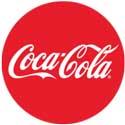 Microsoft Corp. has won a five-year deal with Coca-Cola to supply business software, including its Teams chat app and Dynamics 365, a suite of Microsoft tools that competes directly with Salesforce.com Inc. Microsoft has been working to win more customers for its specialized software such as apps used by customer service and sales employees. The company said Coca-Cola will use Microsoft technology to pull together information several internal systems, using artificial intelligence to fetch data from them and answer questions. A Coca-Cola information technology exec said in a statement that Microsoft’s software would help the company by “replacing previously disparate and fragmented systems” and will eventually be used to help quickly answer questions from the beverage maker’s customers, which include major retailers and grocers.[Image Credit: © The Coca-Cola Company]
Microsoft Corp. has won a five-year deal with Coca-Cola to supply business software, including its Teams chat app and Dynamics 365, a suite of Microsoft tools that competes directly with Salesforce.com Inc. Microsoft has been working to win more customers for its specialized software such as apps used by customer service and sales employees. The company said Coca-Cola will use Microsoft technology to pull together information several internal systems, using artificial intelligence to fetch data from them and answer questions. A Coca-Cola information technology exec said in a statement that Microsoft’s software would help the company by “replacing previously disparate and fragmented systems” and will eventually be used to help quickly answer questions from the beverage maker’s customers, which include major retailers and grocers.[Image Credit: © The Coca-Cola Company]
India’s Coke Bottler Hikes Salaries As Pandemic Spurs Drop In Consumption
 Hindustan Coca-Cola Beverages (HCCB) of India announced it is giving its 7,000 direct employees a seven to eight percent raise in the midst of the coronavirus pandemic, even as other businesses cut jobs and wages. Coca-Cola's company-owned bottling partner in India also said there will be no lay-offs or salary reductions because of the disruption caused by the pandemic and subsequent lockdowns. It will follow the same compensation norms as in 2019, according to a spokesperson. In a quarterly earnings statement, CEO James Quincey said in some markets, including India, implementation of tight social distancing measures has resulted in lower consumption levels. The company’s unit case volume declined by five percent in all world markets for the January-March quarter. This decline was driven by lower levels of consumption in India, according to Coca-Cola. HCCB has 15 factories in India. [Image Credit: © THE COCA-COLA COMPANY]
Hindustan Coca-Cola Beverages (HCCB) of India announced it is giving its 7,000 direct employees a seven to eight percent raise in the midst of the coronavirus pandemic, even as other businesses cut jobs and wages. Coca-Cola's company-owned bottling partner in India also said there will be no lay-offs or salary reductions because of the disruption caused by the pandemic and subsequent lockdowns. It will follow the same compensation norms as in 2019, according to a spokesperson. In a quarterly earnings statement, CEO James Quincey said in some markets, including India, implementation of tight social distancing measures has resulted in lower consumption levels. The company’s unit case volume declined by five percent in all world markets for the January-March quarter. This decline was driven by lower levels of consumption in India, according to Coca-Cola. HCCB has 15 factories in India. [Image Credit: © THE COCA-COLA COMPANY]
CCEP Q1 Revenue Declines Four Percent
 Coca-Cola European Partners plc (CCEP) reported that FY 2020 first quarter revenue slid four percent from a year ago to $2.7 million. Challenging comparables, some customer disruption due to a planned pricing strategy, and the initial impact of the COVID-19 pandemic all played a part in driving comparable volumes for the period down four percent. Revenue per unit case increased 1.5 percent, thanks to favorable price and promotions offset by negative channel and pack mix. The company is reducing discretionary spending in trade marketing, promotions, merchandising, incentives, seasonal labor, travel, and meetings, representing a potential fiscal year cost reduction of $218 million to $272 million. CCEP is also delaying some discretionary capital expenditure, resulting in a 2020 capex of about $381 million.[Image Credit: © The Coca-Cola Company]
Coca-Cola European Partners plc (CCEP) reported that FY 2020 first quarter revenue slid four percent from a year ago to $2.7 million. Challenging comparables, some customer disruption due to a planned pricing strategy, and the initial impact of the COVID-19 pandemic all played a part in driving comparable volumes for the period down four percent. Revenue per unit case increased 1.5 percent, thanks to favorable price and promotions offset by negative channel and pack mix. The company is reducing discretionary spending in trade marketing, promotions, merchandising, incentives, seasonal labor, travel, and meetings, representing a potential fiscal year cost reduction of $218 million to $272 million. CCEP is also delaying some discretionary capital expenditure, resulting in a 2020 capex of about $381 million.[Image Credit: © The Coca-Cola Company]
Keurig Dr Pepper
Packaged Beverage Performance Drives Keurig Dr Pepper’s Healthy Q1 Financials
Nestle
Nestlé Unveils Q-Cup Machine That Makes “Superfood” Smoothies, Shakes
 Nestlé has launched a new Q-cup machine that enables people to create healthful drinks from natural ingredients at home or in the office. nesQino, launched in China, comprises a silent, digitally connected Q-cup machine, superfood sachets, and three base sachets: smoothie, oat shake, and milk shake. Users can make 21 “superfood” drink recipes designed by nutritionists using fruits, vegetables, nuts and seeds, roots, microalgae, and probiotics. Complementary base sachets are made from dairy milks, cereals, and plant-based ingredients. The company uses advanced flash-freezing and drying techniques, and patented powder technologies, to naturally preserve ingredients without additives, preservatives, artificial colors, or flavors. The packaging is recyclable in China.[Image Credit: © Nestlé]
Nestlé has launched a new Q-cup machine that enables people to create healthful drinks from natural ingredients at home or in the office. nesQino, launched in China, comprises a silent, digitally connected Q-cup machine, superfood sachets, and three base sachets: smoothie, oat shake, and milk shake. Users can make 21 “superfood” drink recipes designed by nutritionists using fruits, vegetables, nuts and seeds, roots, microalgae, and probiotics. Complementary base sachets are made from dairy milks, cereals, and plant-based ingredients. The company uses advanced flash-freezing and drying techniques, and patented powder technologies, to naturally preserve ingredients without additives, preservatives, artificial colors, or flavors. The packaging is recyclable in China.[Image Credit: © Nestlé]
Other Companies
Suntory Releases Another Functional Tea In Japan
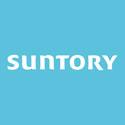
Japan’s Suntory has launched a green tea-based beverage – lemon plus (carbohydrates) – that was approved under the country’s food-with-function claim (FFC) scheme. The beverage is said to suppress the post-meal absorption of carbohydrates, particularly sugar. The company last year launched a lemon plus drink to control cholesterol. Suntory also said it is rebranding its 14-year-old black oolong tea with a food-for-specified-health-uses (FOSHU) claim that it reduces fat absorption after meals. The launches are part of the company’s 2018 100-year life project that seeks to contribute to extending the healthy life expectancy of the Japanese population by offering functional beverages.[Image Credit: © SUNTORY HOLDINGS LIMITED]
Oatly Boosts Mainland China Presence By Riding The Starbucks Bus
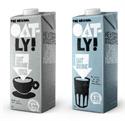 As an increasing number of mainland Chinese consumers seek more healthful foods and beverages, Starbucks has partnered with oat milk maker Oatly, and with plant-based protein companies Beyond Meat and Omnipork, to offer products free of meat or animal products. More than 4,200 Starbucks locations in the country have started serving vegetarian-friendly items such as oat milk matcha lattes and plant-based protein foods. A report by marketing consultant Bain said products associated with a healthier lifestyle will experience rocketing growth in China. Oatly has ambitious goals in a country where soy milk is already widely available – including at Starbucks – as an alternative to cow's milk. "We're not going to replace soy. I don't think we can in Asia," Oatly CEO Toni Petersson said. "But when it comes to the new type of plant-based milk, it's us, 100 percent." With the new Starbucks tie-up, China is now Oatly's biggest market in Asia. [Image Credit: © Oatly AB]
As an increasing number of mainland Chinese consumers seek more healthful foods and beverages, Starbucks has partnered with oat milk maker Oatly, and with plant-based protein companies Beyond Meat and Omnipork, to offer products free of meat or animal products. More than 4,200 Starbucks locations in the country have started serving vegetarian-friendly items such as oat milk matcha lattes and plant-based protein foods. A report by marketing consultant Bain said products associated with a healthier lifestyle will experience rocketing growth in China. Oatly has ambitious goals in a country where soy milk is already widely available – including at Starbucks – as an alternative to cow's milk. "We're not going to replace soy. I don't think we can in Asia," Oatly CEO Toni Petersson said. "But when it comes to the new type of plant-based milk, it's us, 100 percent." With the new Starbucks tie-up, China is now Oatly's biggest market in Asia. [Image Credit: © Oatly AB]
From e-sports to mainstream, Synapse creates new category of functional beverages
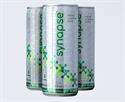
Atlanta, Ga.-based Synapse, which markets a stimulant-free nootropic beverage popular among video gamers and e-sports competitors, has begun to establish a foothold among mainstream consumers who want alertness enhancement without the side effects of caffeinated drinks. Sales of Synapse have quadrupled quarter over quarter in the online marketplace, the company said, and it is beginning to make inroads into the retail functional beverage arena. It launched into more than 300 grocery stores in February 2019; national retailers are expected to come on board next month.[Image Credit: © Akyron Industries Incorporated.]
Retail Beverage Trends Buoyed By Coronavirus Pandemic
 Chicago-based beverage development company Imbibe, while acknowledging that the coronavirus pandemic has created uncertainty for both consumers and CPG companies, nevertheless believes beverage formulators should expect beverage trends to stay on course in the weeks and months ahead. Interest in products that support immunity, sleep, and stress reduction will likely remain strong, though consumers may be less willing to pay extra for convenience and premiumization. Look for more interest in DIY beverage kits and in “familiar functional ingredients” with established supply chains, like probiotics, turmeric, and ginger for immunity, and lavender, chamomile, and green tea for mood enhancement. Reports of “people having trouble sleeping and having weird dreams” suggest opportunities for sleep beverages as well as energy drinks, the company says. Lastly, sales of DIY beverage kits have been on the rise at online retailer Uncommon Goods, which offers make-at-home products like beer, wine, and cocktail sets.[Image Credit: © Dean Moriarty from Pixabay]
Chicago-based beverage development company Imbibe, while acknowledging that the coronavirus pandemic has created uncertainty for both consumers and CPG companies, nevertheless believes beverage formulators should expect beverage trends to stay on course in the weeks and months ahead. Interest in products that support immunity, sleep, and stress reduction will likely remain strong, though consumers may be less willing to pay extra for convenience and premiumization. Look for more interest in DIY beverage kits and in “familiar functional ingredients” with established supply chains, like probiotics, turmeric, and ginger for immunity, and lavender, chamomile, and green tea for mood enhancement. Reports of “people having trouble sleeping and having weird dreams” suggest opportunities for sleep beverages as well as energy drinks, the company says. Lastly, sales of DIY beverage kits have been on the rise at online retailer Uncommon Goods, which offers make-at-home products like beer, wine, and cocktail sets.[Image Credit: © Dean Moriarty from Pixabay]
Talking Rain Debuts Non-Carbonated Performance Water
Dairy Milk Sales Rebound In Past Year
.jpg&width=125&height=83) Market researcher IRI reports that in the last 52 weeks, fluid milk posted an increase in retail dollar sales for the first time in two decades, thanks to a stay-at-home cooking trend. Total refrigerated milk products (dairy and non-dairy, including kefir and value-added flavored milks) showed a 3.6 percent increase in dollar sales vs. the same 52-week period one year ago. Whole milk sales were up 6.6 percent, while nonfat and low-fat milk sales, which had been declining categories for most brands, were up 0.8 percent. Many varieties of non-dairy options are showing growth, though they have been on a positive trajectory for some time. “Once again, we are eating at home,” said an IRI analyst. “Coming back to the family dinner table happened practically overnight, hence the jump in numbers.”[Image Credit: © https://cdn.pixabay.com/photo/2018/03/16/16/42/milk-3231772_960_720.jpg]
Market researcher IRI reports that in the last 52 weeks, fluid milk posted an increase in retail dollar sales for the first time in two decades, thanks to a stay-at-home cooking trend. Total refrigerated milk products (dairy and non-dairy, including kefir and value-added flavored milks) showed a 3.6 percent increase in dollar sales vs. the same 52-week period one year ago. Whole milk sales were up 6.6 percent, while nonfat and low-fat milk sales, which had been declining categories for most brands, were up 0.8 percent. Many varieties of non-dairy options are showing growth, though they have been on a positive trajectory for some time. “Once again, we are eating at home,” said an IRI analyst. “Coming back to the family dinner table happened practically overnight, hence the jump in numbers.”[Image Credit: © https://cdn.pixabay.com/photo/2018/03/16/16/42/milk-3231772_960_720.jpg]
Open Water Achieves “Climate Neutral” Certification, Thanks Partly To Aluminum Packaging
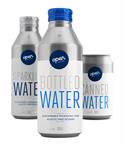 Independent nonprofit Climate Neutral, whose mission is to speed up “the transition to a low-carbon world,” has certified Chicago-based bottled water company Open Water as Climate Neutral, meaning the company has achieved net-zero carbon emissions. Open Water, formerly Green Sheep Water, packages its electrolyte-enriched beverage in “infinitely recyclable” aluminum bottles and cans and by using aluminum caps instead of plastic ones. To achieve the certification, the company calculated its 2019 carbon footprint from manufacturing and production through finished product delivery; committed to a plan to cut future greenhouse gas emissions; and invested in two forest conservation projects and in another that collects and destroys methane gas emissions.[Image Credit: © Green Sheep, Inc. dba Open Water | formerly Green Sheep Water]
Independent nonprofit Climate Neutral, whose mission is to speed up “the transition to a low-carbon world,” has certified Chicago-based bottled water company Open Water as Climate Neutral, meaning the company has achieved net-zero carbon emissions. Open Water, formerly Green Sheep Water, packages its electrolyte-enriched beverage in “infinitely recyclable” aluminum bottles and cans and by using aluminum caps instead of plastic ones. To achieve the certification, the company calculated its 2019 carbon footprint from manufacturing and production through finished product delivery; committed to a plan to cut future greenhouse gas emissions; and invested in two forest conservation projects and in another that collects and destroys methane gas emissions.[Image Credit: © Green Sheep, Inc. dba Open Water | formerly Green Sheep Water]
Copyright 2026 Business360, Inc.

